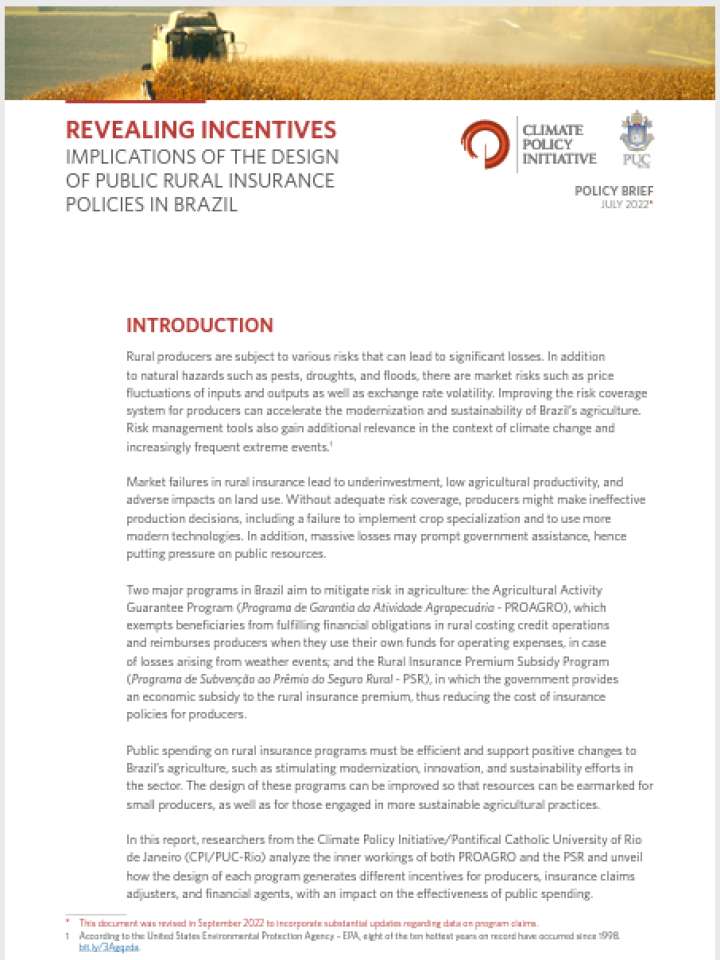Revealing incentives: Implications of the design of public rural insurance policies in Brazil
In this report, researchers analyze the inner workings of both the Agricultural Activity Guarantee Program (Programa de Garantia da Atividade Agropecuária (PROAGRO) and the Rural Insurance Premium Subsidy Program (Programa de Subvenção ao Prêmio do Seguro Rural (PSR) and unveil how the design of each program generates different incentives for producers, insurance claims adjusters, and financial agents, with an impact on the effectiveness of public spending.
Some of the policy recommendations from the research include:
- Investing in the training of claims adjusters and improving the inspection of claim events can reduce the irregular approval of compensation payments under PROAGRO. Parameterization (using satellite imagery and data on temperature and rainfall) can complement and facilitate the work of insurance claims adjusters.
- Production in accordance with the Agricultural Climate Risk Zoning (Zoneamento Agrícola de Risco Climático – ZARC) reduces the risks associated with the agricultural practices of insured producers. The ZARC can be improved to include management criteria, as informed by the latest Agricultural Plan (Plano Safra).
- Migration of PROAGRO’s resources to the PSR would not only be in line with the recent growth of the PSR but would also mitigate some of the public spending efficiency issues in PROAGRO. However, this migration should be accompanied by efforts to address current challenges facing the PSR.
Explore further
